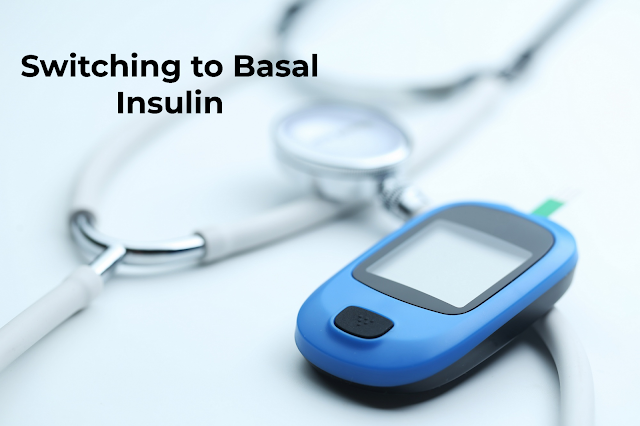One of the most important factors in choosing a good provider is to educate themselves about their company's plans and history. While getting advice from an unfamiliar healthcare professional can be tough, there are several ways to make sure you can get what you need. You don't want to choose a physician who you aren't familiar with yet can't give you all the answers about treatment. Here are some questions to ask your practitioner:
1. Should I have my blood sugar checked by my nurse or a registered dietitian before getting treated?
You might feel better if you talk to your nurse at first, but check with your medical team. If you do decide to see a Doctor, they can do blood tests for free, which can also help determine if you should continue your medication or not. Most doctors will explain to you that this could potentially put you at risk of developing type 2 diabetes if your BGLs go over 200.
2. When will your doctor check my results?
Your doctor can check your results by phone, in person. This can give them an insight into your glucose level, and if you have any new symptoms or questions about the medicines that you're currently taking. Make sure you're given the information they need in keeping with your condition. Make sure that your doctor gives you clear information about what you need to know and what you're expected to do during this time. There are various forms of treatment that you need to take, so a plan is needed.
3. How much blood sugar should I take when I start taking these pills?
There are many factors to consider when deciding how much insulin to provide and many that you may not know, so it's best to discuss these with your doctor. These prescription drugs are usually provided as pre-filled syringes and you should count the number of units before giving them to prevent them from going to waste. Once you've chosen a prescription, the drug is administered throughout your body in one small amount. Don't forget about this once they're started.
4. Are there any side effects that you need to know about? What are the chances of these drugs getting out of hand?
Insulin drugs can cause side effects. Some people may feel tired, sore stomach, nausea, and diarrhea after taking these medications. Also, certain insulin injections come in different sizes, which means that they may have a higher chance of causing allergic reactions if you have allergies. Other medications include things like sodium bicarbonate, magnesium sulfate or other electrolyte mixes, which should always be avoided if you're diabetic and you have severe high blood pressure. As you begin to notice these side effects, ask your doctor if there is anything else you need to know. In the long run you might want to find out if you have hypoglycemia, the same condition as diabetes and can lead to serious complications like loss of consciousness and sudden death. Keep an eye out for signs of hypoglycemia, like feeling dizzy or lightheaded.
5. Is there another way I can take these pills if I'm having trouble using it?
If you have diabetes you may have several options. Some pills such as Metformin, which is used as a diuretic, can help control your water retention and kidney problems. Another option would be Adapalene, which treats prostate cancer symptoms. Injections such as Janten are often used for severe heartburn.
6. Can I use the regular kind instead?
You don't have to buy multiple doses because each pill is just one. Or do they take longer to fill? Not everyone takes the exact same amount of insulin doses, so it's best to talk to your doctor before you fill up your container.
7. Am I sure these pills are safe if I take them?
These medicines are a lot safer than steroids because they don't directly affect a person. However, it should be noted that they should never be taken by children under twelve years old or those with severe epilepsy, as this can increase the possibility for liver damage and other negative health impacts.
8. What kind of appointments do I need?
Try talking with your surgeon if you need to. Even after you fill up your prescriptions, make sure to tell your doctor when you would like to have them filled. They can be available for virtual visits and this can be helpful for you when you don't have an hour or two to get your medication. An appointment is a great alternative to visiting your healthcare provider. It gives you a personal interaction with someone, or even if you're looking for some extra help with your care. Ask your doctor about the options available such as scheduling a virtual visit, online consultations, and other ways that they can help you.
If you have any other medical conditions or any questions you're thinking about when picking a pharmacy, talk to your provider about the supplies they can offer. There are more options and this makes for a much more personalized approach. Having your own bag of meds or prescriptions should be easy!
Medicine has made extremely good strides over the closing 50 years. Modern medicinal drug appears a lot exceptional than the medicinal drug of 1966. Today carriers are 3d printing bones, changing organs, and conducting minimally invasive surgery.
Yet healthcare operations of 2016 are remarkably similar to healthcare operations of 1966. Why haven’t the transport structures of healthcare changed? Why haven’t core issuer operations modified lots in the closing 50 years, and why do vendors hostilities to undertake fitness IT even even though they’ve adopted so many scientific innovations?
In short, due to the fact it’s lots less difficult to undertake new clinical remedies than to alter the operations of a healthcare shipping system. The former is an incremental improvement. The latter requires commercial enterprise mannequin changes, altering job roles, and more.






0 Comments